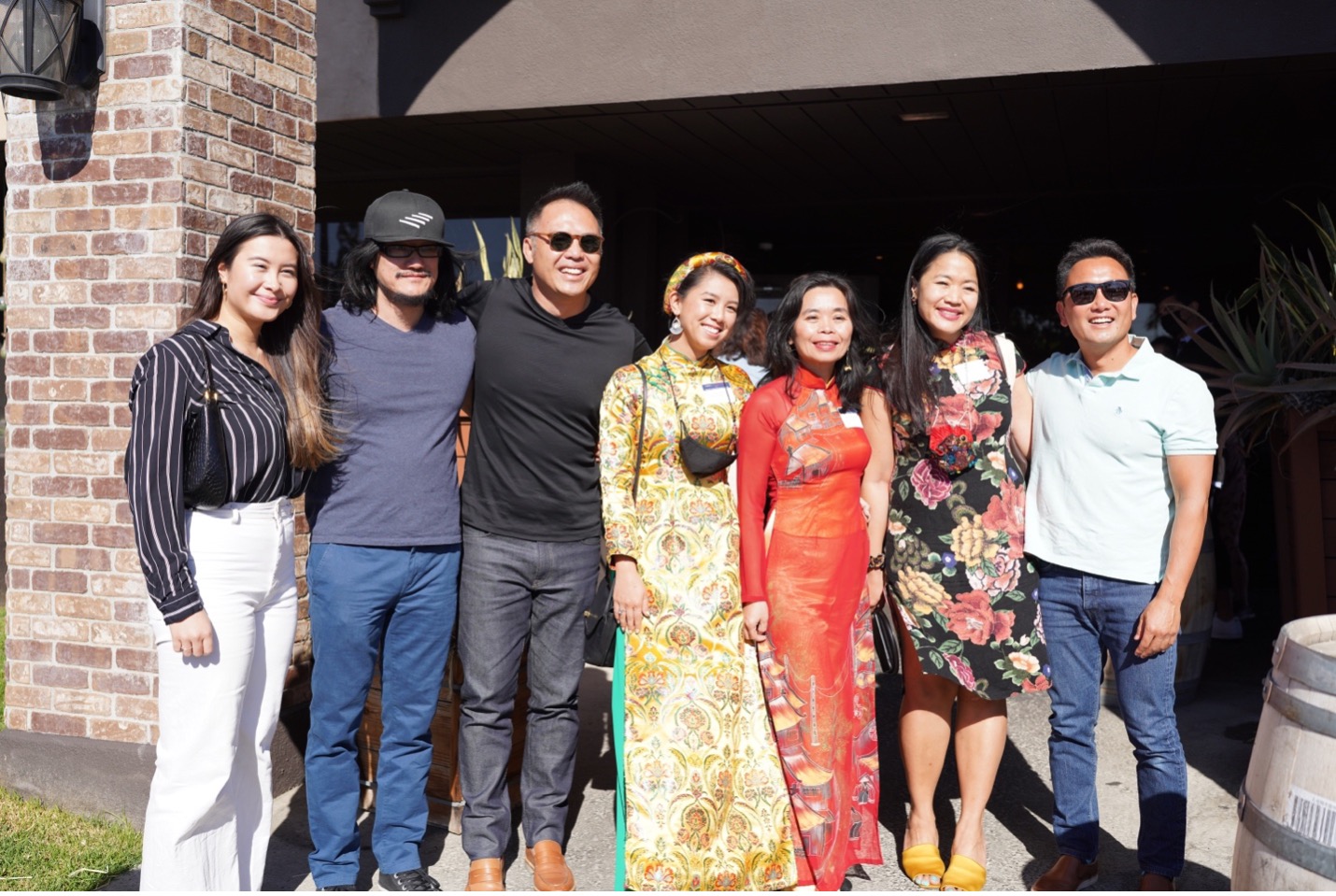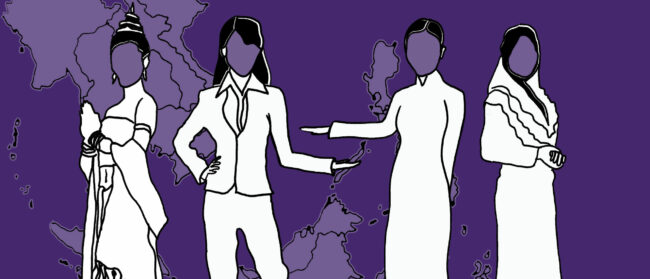Nguyễn Phan Quế Mai was born in 1973, two years before the reunification of Vietnam and the end of the 20-year-long war with the U.S.
Growing up in a small village in northern Vietnam, she was surrounded by bomb craters and those who lost limbs and loved ones in the turmoil. In the tenuous postwar period, hunger was prevalent and opportunities were limited.
By the time she was six years old, her family had moved more than 1,500 kilometres south to coastal Bạc Liêu province in search of easier access to food and higher education. Although natural resources were plentiful, the northern family was not welcomed into the southern community after decades of division.
The first night they sat down to dinner, rocks were hurled at their home. Against the tin roof, the stones sounded like explosions.
“When I moved South I felt like a refugee,” she told the Globe. “I was bullied. But when I grew up, I understood why I was resented. [Southerners] also suffered a lot from the war, many of them had lost their family members, some of them were put into reeducation camps, some were fleeing.”
“I tried to understand the stories of those who wounded me.”
These stories would fuel Quế Mai’s literary future and her ties to both the north and south drive her message of reconciliation. After writing fiction, nonfiction and poetry in Vietnamese, Quế Mai’s recent effort is to add a Vietnamese perspective to the dominant narratives on the war.
“I want to reclaim the Vietnamese space in the canon of literature about Vietnam and also put Vietnamese people and our issues in the centre of the story,” she said.
“We lost so much due to wars and colonisation. I want to undo some of the losses. I want to show the colours and complexity of our language, our culture. … I want to show that Vietnam is more than the war.”
Quế Mai’s career is unprecedented. She is the first Vietnamese national to garner international acclaim for works in English.
She bridges divides between northerners, southerners and colonial forces – revealing humanity on all sides of a war which led to the death of 3 million Vietnamese, nearly 60,000 U.S. troops and tens of thousands of Laotians and Cambodians, leaving many more traumatised.
Her first novel in English, The Mountains Sing, was released in March 2020. The book unfolds the multigenerational tale of the Trần family navigating Vietnam’s turbulent 20th century. An international bestseller, the book won numerous awards and has now been translated into 20 languages. .

Her second novel, Dust Child, will debut on 14 March and was inspired by her early years in Bạc Liêu. While bullied as a young girl in the South, she noticed her family were not the only social outcasts. Amerasians – the children of U.S. soldiers and Vietnamese women, estimated to have numbered in the tens of thousands and scattered throughout Southern Vietnam – were the targets of abuse.
Dust Child follows Phong, the orphaned son of a Black U.S. soldier and a Vietnamese woman on his search for family in a society that rejects him. Along with Phong, Dust Child introduces Quỳnh and Trang, sisters from the rural Mekong Delta who nervously head to Saigon during the 1970s to work as bar girls to help their parents settle debts, and Dan, a U.S. veteran suffering from post-traumatic stress disorder who returns to Vietnam in 2016.
The characters’ journeys explore how survivors of war aren’t just those who fought on the battlefield, while tackling issues including sexism, racism, and the long-reaching wounds of conflict.
“I think this book is really my message of peace,” Quế Mai said.
To help her family survive in Bạc Liêu, the young Quế Mai would wake up before dawn to collect shrimp, harvest rice, and sell cigarettes and vegetables on the street.
From an early age, she wanted to be a writer and began gathering stories.
Quế Mai started learning English in eighth grade and eventually earned a scholarship to study at Australia’s Monash University, but her parents discouraged a literary career. After getting her degree in business administration, she returned to Vietnam and began working as a translator and journalist, winning awards for her writing including the 2010 Poetry Prize of the Hanoi Writers’ Association.
Many years of research went into what would become The Mountains Sing and Dust Child while Quế Mai worked toward her Masters and PhD in creative writing from Lancaster University in the U.K.
I think this book is really my message of peace”
Nguyễn Phan Quế Mai
Growing up in Bạc Liêu, she would often find the seats of her classmates empty as many left the country by boat in the 1970s and 80s. Decades later, members of the Vietnamese diaspora are finding meaning in her work.
“With the diasporic Vietnamese, I’m really surprised and moved by their reaction to The Mountains Sing,” Quế Mai said.
“Part of the perspective [is from] a Vietnamese family who lived in Hanoi and normally people in the Vietnamese diaspora, they don’t embrace such stories.”
Some in the Vietnamese-American community have made a deep connection to Quế Mai despite a long-held fear among the older generation of communist “infiltration” by Vietnamese nationals, said Kenneth Nguyen, host of The Vietnamese podcast.
For the podcast presenter Nguyen, who interviewed Quế Mai for an episode of The Vietnamese, the author has resonated among Vietnamese Americans because she offered an unseen and unexpected perspective in The Mountains Sing. The northern family depicted in the novel escapes the land reforms beginning in the 1950s.
“We don’t normally see the devastation coming from the north from a northern writer,” he said. “That setting alone puts you into the mindset that this writer doesn’t give a shit about politics.”
When Quế Mai visited Los Angeles for book events in 2021, Kenneth Nguyen cooked dinner for Quế Mai and about 25 Vietnamese-Americans – the sons and daughters of those who fled Vietnam after the war.
“Having her sit amongst the children of these officials and the descendants of the people who lost the war was a very healing experience for everybody,” he said.
Despite the fraught history between the north and south and diasporic Vietnamese with those who have stayed in Vietnam, starting dialogue between the global community is essential for Quế Mai.
“It’s much harder for the generation of Kenneth’s parents and my parents to sit down and have a conversation and I think it’s up to us, the second generation, to bring the older generation together,” Quế Mai said.
“I really believe that as a Vietnamese community, we still need to heal, to reconcile, to talk about our experiences. … I hope anyone who reads my work understands my willingness to give space to all stories so that people understand each other’s perspective.”

At its heart, Dust Child gives voice to the marginalised and is informed by years of interviews and real-life research Quế Mai conducted with Amerasians, women who worked at bars to serve American G.Is and veteran returnees.
As an infant, Quế Mai’s lead character Phong was carefully bundled and left tied to the branch of a bodhi tree outside an orphanage – “as small as a cat and trembling”.
Phong was raised by a Catholic nun but after her passing when the boy was just 12 years old, he struggles to find acceptance. The son of a Black father, his plight is exacerbated by racism.
Phong becomes a bụi đời, the dust of life, living homeless in Hồ Chí Minh City. Many Amerasians – such as Phong – do not get the opportunity to learn to read and write and with limited job opportunities live on the streets.
Along with showcasing the stories of bar girls Quỳnh and Trang, Dust Child shows how Dan, the U.S. veteran character grapples with his role in the war and the warped perception his military had of the Vietnamese.
As the character recalls: “General Westmoreland, former commander of U.S. forces in Việt Nam, had said: ‘“The Oriental doesn’t put the same high price on life as does a Westerner. Life is plentiful. Life is cheap in the Orient.”’
It is this racism that Quế Mai is fighting against. Although nearly 50 years have passed since the end of the war, the dominant cultural products describe the war from a U.S. point of view.
“What was left out of the literature about the Vietnam War was the Vietnamese,” Wayne Karlin, author, editor, retired professor and former helicopter crewman in Vietnam from 1963-67 told the Globe.
“If there are veterans who never thought about, or have kept themselves from thinking about, what it was like for the Vietnamese. … I hope [Quế Mai’s writing] will allow them to connect with that humanity.”
But Karlin agreed with Nguyen of The Vietnamese podcast that some of the thorniest reconciliations Quế Mai is pushing for are between Vietnamese.
“I think it is very daring and courageous to take that on,” he said.
The author herself notes the “Vietnam War was not just between Vietnam and the U.S.”
“Many Vietnamese families had members fighting against each other,” Quế Mai said. “The issue of forgiveness and reconciliation is very important for Vietnamese people and still very painful and difficult to resolve.”
Beyond her writing, Quế Mai has been facilitating real-world reunions, facilitating meetings between Amerasians and their parents. Along with that, The Mountains Sing has compelled family members to reach out to each other after decades of separation.
“With The Mountains Sing, and I hope with Dust Child, family members read them together and they will have many conversations. … about different decisions that you must take, about the trauma that you have to overcome and how you can help each other.”
“The mission of my writing is to bring people together, to highlight the common humanity that we all have.”


